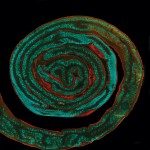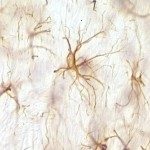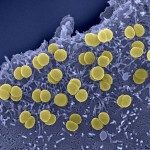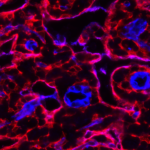Lien vers Pubmed [PMID] – 23768497
Lien DOI – 10.1016/j.chom.2013.04.016S1931-3128(13)00190-X
Cell Host Microbe 2013 Jun; 13(6): 735-45
Neisseria meningitidis is a life-threatening human bacterial pathogen responsible for pneumonia, sepsis, and meningitis. Meningococcal strains with reduced susceptibility to penicillin G (Pen(I)) carry a mutated penicillin-binding protein (PBP2) resulting in a modified peptidoglycan structure. Despite their antibiotic resistance, Pen(I) strains have failed to expand clonally. We analyzed the biological consequences of PBP2 alteration among clinical meningococcal strains and found that peptidoglycan modifications of the Pen(I) strain resulted in diminished in vitro Nod1-dependent proinflammatory activity. In an influenza virus-meningococcal sequential mouse model mimicking human disease, wild-type meningococci induced a Nod1-dependent inflammatory response, colonizing the lungs and surviving in the blood. In contrast, isogenic Pen(I) strains were attenuated for such response and were out-competed by meningococci sensitive to penicillin G. Our results suggest that antibiotic resistance imposes a cost to the success of the pathogen and may potentially explain the lack of clonal expansion of Pen(I) strains.
















